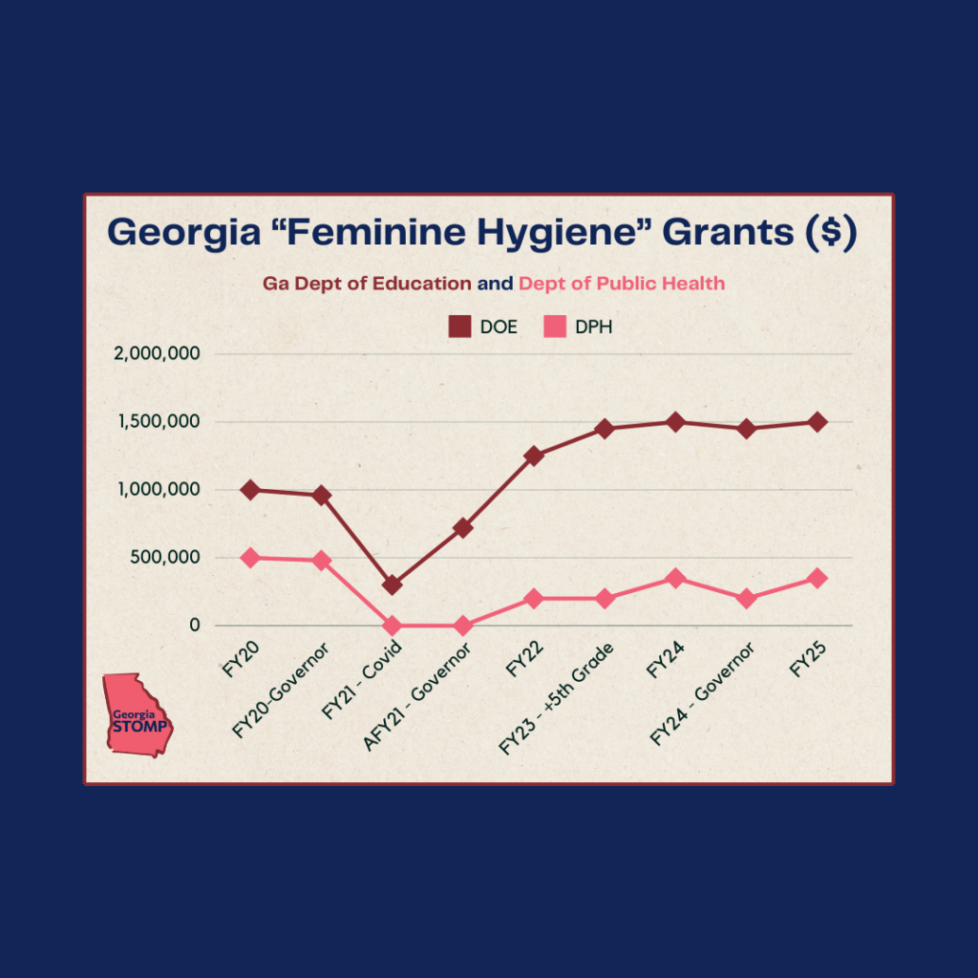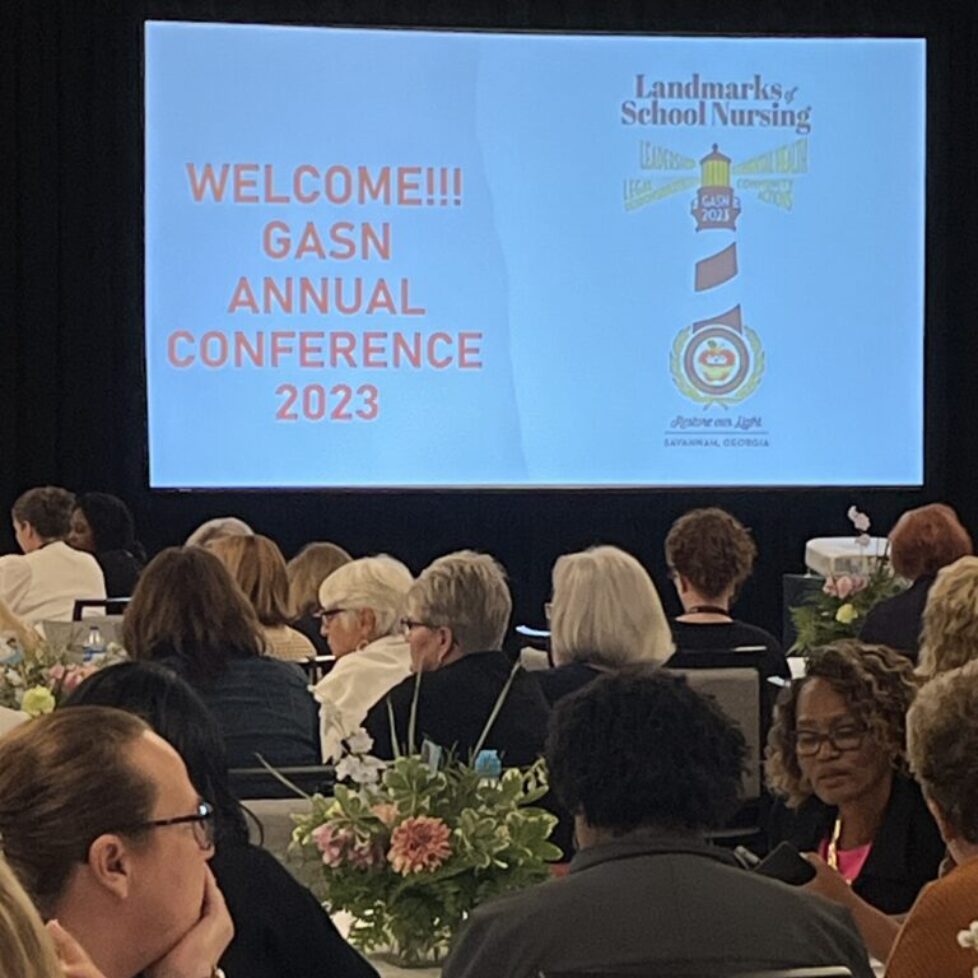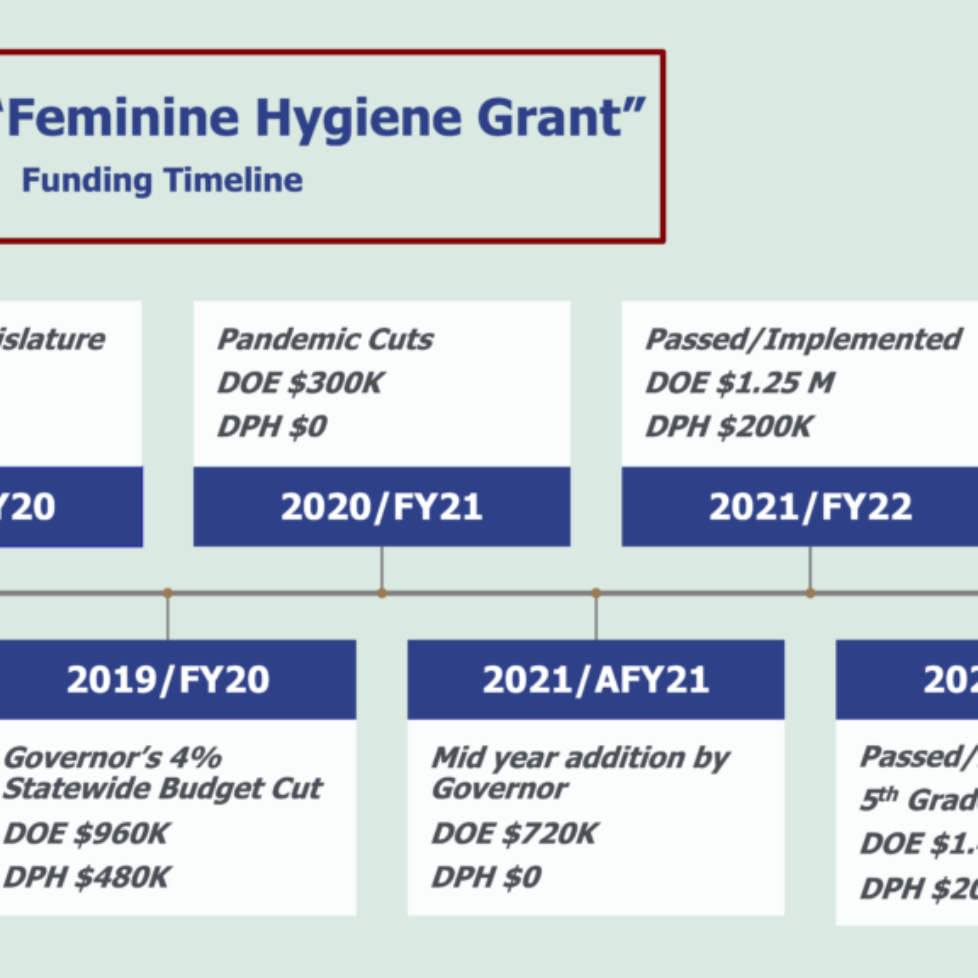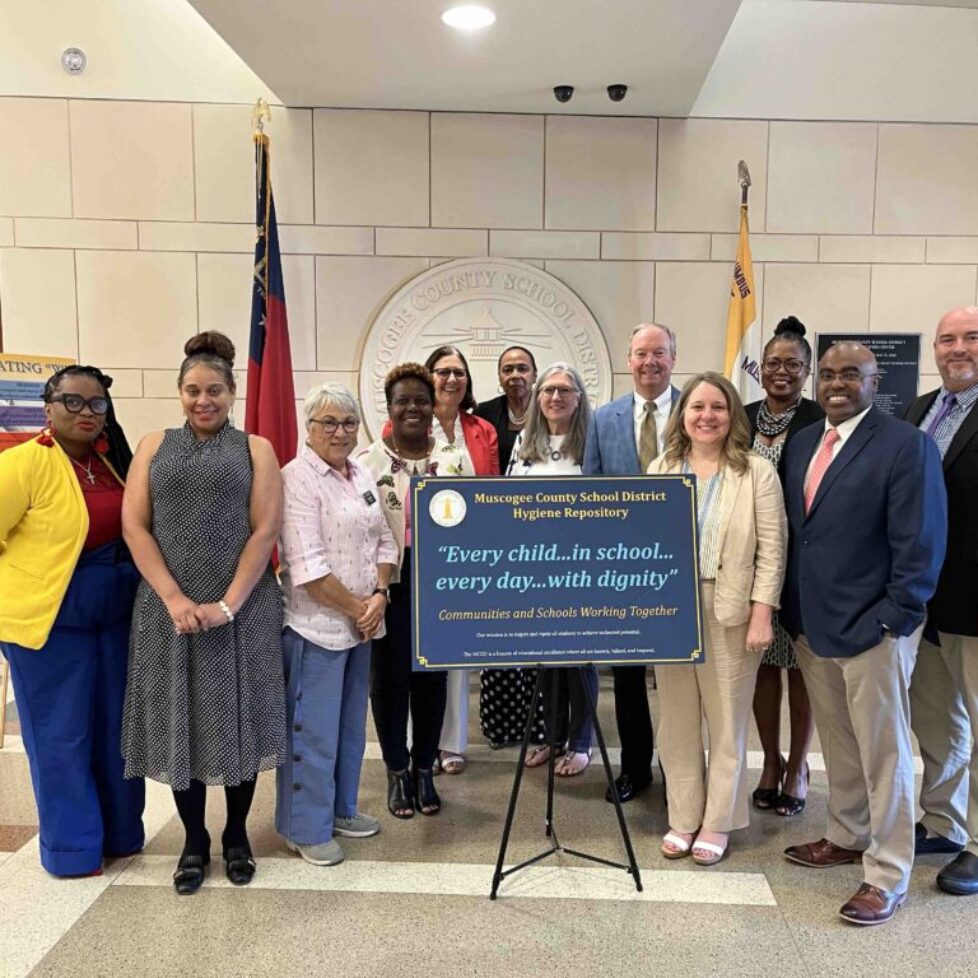Georgia STOMP has been integral to compiling this list since the money was first distributed in 2019. Together with GaDOE leadership we have faced tough decisions about what items the money is meant to cover. The first list consisted only of pads, tampons and pantyliners. Based on feedback from school nurses, we quickly expanded the list to include disposal wipes and underwear.
Last year, multiple school systems requested approval to purchase period product dispensers for placement in restrooms. School nurses recognize that ready access to products keeps students in the classroom and eliminates the stigma of asking for this basic need. GaDOE and Georgia STOMP discussed the possibility of adding dispensers to the list; however, both were determined to use research-based data to make the decision. Concerns focused on what type of dispensers should be allowed, where they would be located, who would stock them and the required coordination with facilities management personnel or maintenance and operations (M&O) departments. Alison Hoover, MPH and April Ballard, PhD, MPH, of Georgia STOMP member organization Dignity Pack Project, graciously agreed to lead this study. Dr. Ballard’s work emphasizes translating research for public health policy into practice and, as a researcher, is an Affiliate member of Georgia STOMP.
For the past year, Dr. Ballard, Hoover and Rachel Dornfest, a student from Emory Rollins School of Public Health, interviewed school nurses, facility managers and others examining the interest, problems, benefits and pitfalls of dispensers. The overwhelming positive response was indicative of the benefits of installing dispensers.
Last week, GaDOE released the money for period products to school districts using its distribution formula. Along with their graphic, GaDOE sent a document prepared by Dr. Ballard with important guidelines, options and considerations local school systems must follow if they use state money to purchase dispensers. Among other things, the document stresses that the dispensers must distribute products for free, be installed in student bathrooms in common spaces, be purchased collaboratively with facility management and that schools should make plans for proper disposal of period products.
As with many decisions related to school management in Georgia, great variations exist between school districts, and even between schools, as to what “dispenser” might mean and how their installation and maintenance is managed. With this input and following numerous conversations with GaDOE leadership, the Ballard/Hoover team took their work a step further. They researched and prepared a document with numerous types of dispensers and strengthened it by adding links to numerous supplier websites. This document is not meant to recommend any of these options over another, but is certainly a useful tool for local school systems to employ when choosing what is the best option in serving their students.
Georgia STOMP was grateful to be the convening entity in this research and to further our partnership with the Georgia Department of Education and with school nurses. For more information, reach out to us at info@georgiastomp.org!


























